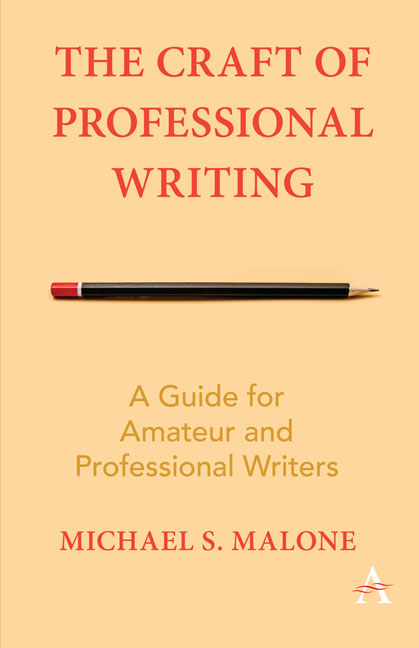Book contents
- Frontmatter
- Dedication
- Contents
- Introduction
- Part One Basics
- Part Two Corporate Careers and Disciplines
- Part Three Writing Careers in Media
- 8 Blogger
- 9 News Reporter
- 10 Critic
- 11 Essayist
- 12 Book Author
- 13 Television and Radio News Reporter
- 14 Screenwriter and Playwright
- 15 Fiction Writer and Novelist
- 16 Academic Track
- 17 Miscellaneous Writing
- Part Four The Work of Professional Writing
- Further Reading
- Suggested Assignments
- Index
9 - News Reporter
from Part Three - Writing Careers in Media
- Frontmatter
- Dedication
- Contents
- Introduction
- Part One Basics
- Part Two Corporate Careers and Disciplines
- Part Three Writing Careers in Media
- 8 Blogger
- 9 News Reporter
- 10 Critic
- 11 Essayist
- 12 Book Author
- 13 Television and Radio News Reporter
- 14 Screenwriter and Playwright
- 15 Fiction Writer and Novelist
- 16 Academic Track
- 17 Miscellaneous Writing
- Part Four The Work of Professional Writing
- Further Reading
- Suggested Assignments
- Index
Summary
What is news reporting?
Reporting the news is the heart of journalism, which is why it has always constituted the front page of newspapers, is the primary work of wire services and is the cornerstone of journalism education. News reporters make up the plurality of nearly all newsrooms. All other types of reporting are second in priority to the news.
What is news?
It is in the word itself. “News” is made up of events of importance to the reader that have either just occurred or are still unfolding. Reporting on these events typically requires the reporter to be on the scene (if possible), gathering facts and quotes and preparing a story under a tight deadline. In television and radio this reporting often is done live, with the reporter standing before a camera or microphone and improvising the story from rough notes.
Types of news reporting
In terms of format, all news reporting is basically the same— as we shall see. Where news reporting is differentiated is by beat; that is, by the particular area of daily life where news stories are most likely to be generated. Here is a list of some of the most common beats for news reporters:
General Assignment— This is often the first job of the neophyte reporter. As the name suggests, general assignment reporters arrive on the job each day and are told by the assignment editor what story they are to cover. The stories can come from any one of the various beats, even from one of the other departments of the publication or station. For newcomers, general- assignment reporting is sort of a test by fire: everyday is something new and often unpredictable. One day you can be interviewing a famous figure visiting your town, the next covering the horror of a plane crash.
For veteran reporters, general assignment offers both novelty and a kind of completeness. The author used to work in a newspaper newsroom across from two women, both veteran reporters who had chosen to stay in general assignment work. Because I was a business reporter, my desk was perpetually buried in press releases and briefing documents related to ongoing stories. By comparison, when the two ladies finished their work day and filed their stories, they would just sweep all the paperwork off their desks into a nearby waste basket and go home without a worry.
- Type
- Chapter
- Information
- The Craft of Professional WritingA Guide for Amateur and Professional Writers, pp. 121 - 140Publisher: Anthem PressPrint publication year: 2018



